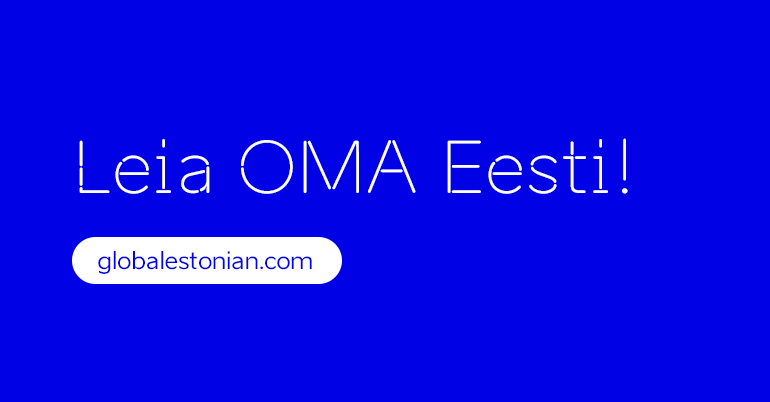Why impact start-ups matter?
Manager of Tehnopol Startup Incubator Kadri Tammai discusses the boundaries and goals of impact entrepreneurship, and whether rapid growth in corporate value is inversely proportional to the impact of an enterprise.
After the years of the COVID-19 pandemic, 2022 was a roller-coaster ride for businesses. The constant changes and surprises that are normal in the start-up sector have also driven other businesses to change their business models and find new suppliers and clients. What worked yesterday may not necessarily work tomorrow. Start-ups have constant change in their very DNA, while the winners in more traditional businesses are those who can adapt quickly. Adapting is necessary, and will hopefully lead to better results.
The North Star of technology entrepreneurship
The European centre for start-ups, and the first fully digital country. The country with the most unicorns; the country with the most capital invested – with the obvious caveat of its small size, but even so; – 18th place among the most innovative countries of the world. The list goes on and is impressive, and Estonia has earned its many titles with distinction. As it is always said at the end of the year, a lot has been done and a lot remains to do.
Just like nature’s zoo, the ecosystem in business is very varied. Its unicorns and gazelles are generally well known and much discussed, but its zebras, or impact companies, rather less so. Supporting this impact entrepreneurship, however, is what needs a conscious effort from us.
What is or is not an impact enterprise?
Many businesses may want to state boldly that all companies have an impact, and of course, they do. However, what is that impact? One thing is clear, that it is businesses that create added value and new jobs. It is equally clear that some businesses have a greater impact on society than others do.
Impact entrepreneurship is no new concept, and when you talk to people about it, it quickly boils down to the question of which company can rightly be called an impact enterprise, and which companies should an investor look at if they are interested in impact entrepreneurship. As human beings, we love to create a structure in our minds so that we can understand things better, and the general understanding is that impact enterprises are those that offer solutions for meeting the global Sustainable Development Goals of the United Nations. These goals address general problems like poverty, hunger, health and welfare, good quality education, and gender equality, and also practical issues like clean water, sustainable energy, and industry and innovation. There are 17 goals in total, and different countries evidently face different challenges. The word ‘sustainable’ appears in one or other form in many of the goals.
Estonia is in 10th place among the 193 countries of the United Nations in meeting the global Sustainable Development Goals. Finland sits at the top of the table, and Estonia ranks behind Sweden, Denmark and Norway, the other northern countries that we like to compare ourselves to, but ahead of the United Kingdom.
Estonia has set the target of achieving all 17 of the UN goals by 2030, and our current score is 80.62 out of 100. We are advancing every day with small steps.
Inclusion, not exclusion
It may be a good thing that we do not draw excessively strict lines to separate impact enterprises and other businesses. The boundary should be loosely defined, and the bar not set too high. The animal we are looking at here is not the giraffe, and we do not need to build a high fence that only a few can enter or see over. It should be more like a sandpit in a play area, where everyone is welcome if the priority is to work with others to have a beneficial social impact and to do so by building exciting and profitable businesses. This is the home of the zebras. The Savannah.
Estonian biologist and nature photographer Urmas Tartes has said that “anyone who has ever seen a zebra knows that there is no more eye-catching animal in the world”. And anyone who has seen a good impact company will not want to look away.
There are few zebras in the Estonian business landscape, however. There are some, but there could be many more. The features that have defined the Estonian start-up ecosystem in the past decade have been rapid growth, new markets and services, and good returns for investors. Those features will remain in the future as well, but the landscape will become more exciting, and more varied in a good sense, if zebra-type impact companies can give it a boost.
When I told a friend that we are partnering with LHV bank to open a new round of the Tehnopol Startup Incubator specially for impact enterprises, I was asked whether we are now working with charities and NGOs. Yet there is no contradiction between impact and growth, impact and profitability, or impact and business. Impact amplifies them all! And we will amplify impact companies.
Tehnopol Startup Incubator is currently accepting applications to batch no 8. Apply here before 20 January!







